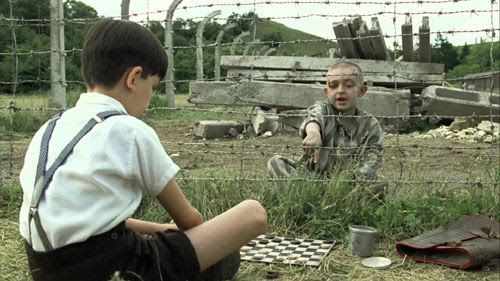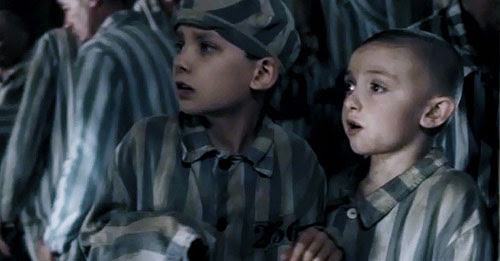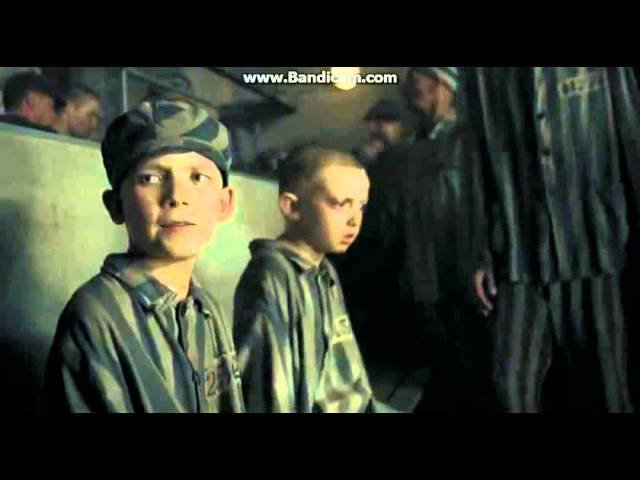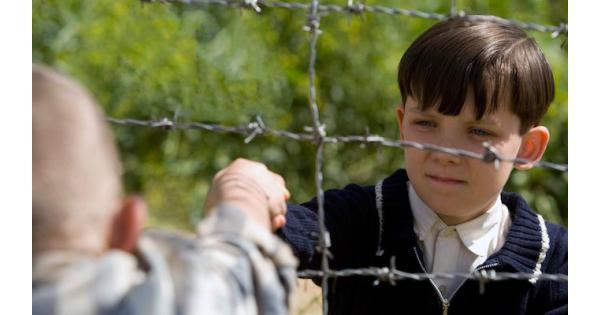Trailer:

Bruno and Shmuel form a clandestine friendship, oblivious to the true nature of the camp and the dire circumstances surrounding them. Their interactions are marked by innocence and curiosity, as they exchange stories and share their differing worlds. Bruno’s sheltered upbringing and Shmuel’s harrowing experiences create a stark contrast, highlighting the vast divide between their lives.
The performances of the young actors, Asa Butterfield and Jack Scanlon, are exceptional. Butterfield captures Bruno’s innocence, naivety, and gradual awakening to the world’s harsh realities. Scanlon’s portrayal of Shmuel is equally compelling, conveying a profound sense of sorrow and resilience.

David Thewlis delivers a chilling performance as Bruno’s father, a man who is both a loving parent and a ruthless officer complicit in the atrocities of the Holocaust. Vera Farmiga, as Bruno’s mother, offers a nuanced portrayal of a woman torn between her loyalty to her husband and her growing horror at his actions.
The film’s cinematography and production design are meticulously crafted, contrasting the idyllic countryside with the grim and oppressive atmosphere of the concentration camp. This juxtaposition underscores the film’s central theme: the innocence of childhood shattered by the cruelty of war.

“The Boy in the Striped Pyjamas” is a deeply affecting film that does not shy away from the brutal realities of its subject matter. The story builds to a devastating climax that leaves a lasting impact, forcing viewers to confront the horrors of prejudice and hatred. The film’s ending, both tragic and poignant, serves as a powerful reminder of the innocent lives lost during the Holocaust and the enduring importance of empathy and understanding.
In summary, “The Boy in the Striped Pyjamas” is a profoundly moving and thought-provoking film that offers a unique perspective on the Holocaust. Through the lens of an unlikely friendship, it explores themes of innocence, humanity, and the devastating effects of bigotry.






